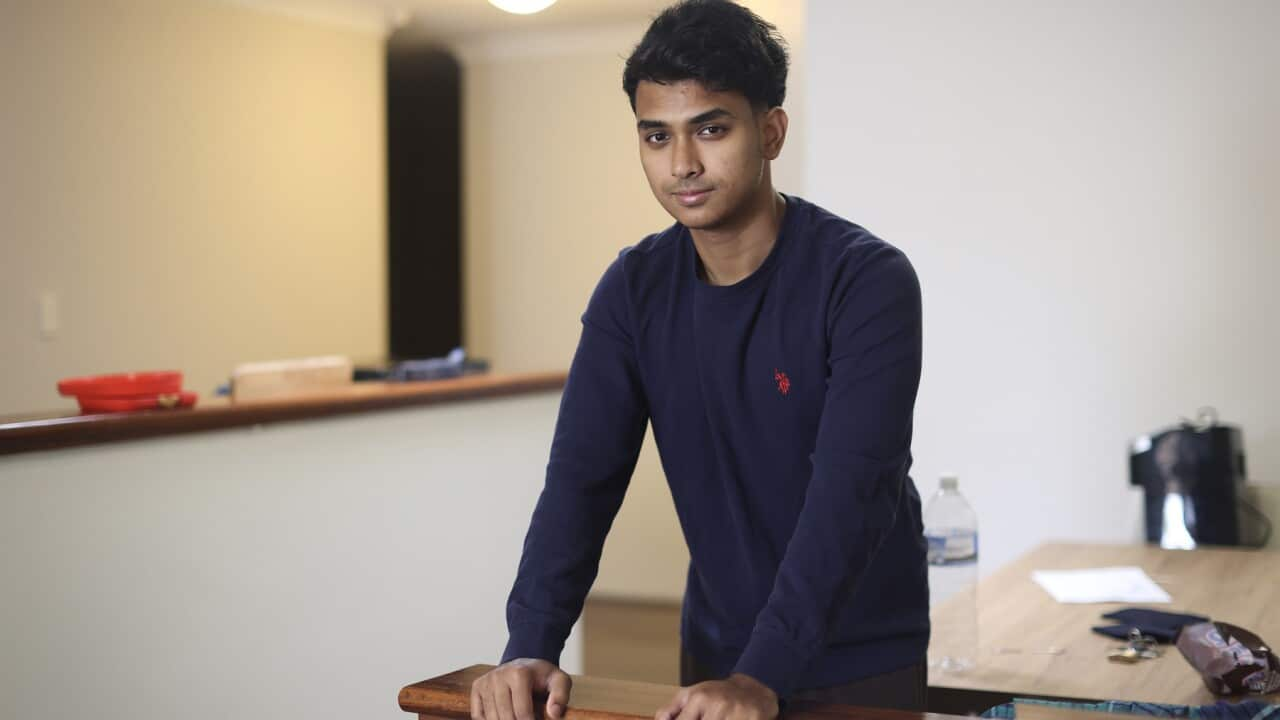TRANSCRIPT
Huzaifa Nawaz is in his third year of studying accounting at Curtin University.
He says there were a range of factors that made him choose Perth as the place to study.
"There were a lot of reasons why I chose Australia specifically. It's not too far away from Bangladesh, the time zone, it's pretty close as well, and then the weather conditions, it's pretty similar to Bangladesh. And I've compared the university rankings, and I thought that, wow, Australia's universities are doing pretty good, they're high in ranking."
Huzaifa is one of around 970,000 international students currently enrolled to study in Australia.
Around 440,000 international students started their study this year alone.
Labor thinks that's too many - they had a plan to cap new commencements to 270,000 a year by giving each institution across the country their own cap as to how many students they could take.
University's had already been told what that limit was, the bill was before the senate, and since the coalition had been calling for student caps its something Labor anticipated they would support.
But at the last minute, that changed.
Opposition Leader Peter Dutton says the bill won't fix the issue.
"It's a disaster across the rest of the sector, and we're not going to support a bill which creates a bigger mess of the government's making on top of what they've already done."
The coalition want to limit migration, with concerns too many arrivals have made the housing crisis worse and put families under additional cost of living pressures.
They say the bill doesn't go far enough, vowing to introduce their legislation to cap student numbers if they win the next election.
That means the limit, that was meant to apply from January, would be postponed by at least a year.
Education Minister Jason Clare criticising the move, saying the bill would allow the government of the day to change the cap to what they think is an appropriate level.
"The legislation in the parliament gives the power to the government to set a cap on the number of international students that come into the country in any given year, full stop. So you can set that at 100,000, 200,000, or zero. Now this is what Peter Dutton said he wanted, and now he's voting against it."
Opposition immigration spokesperson Dan Tehan denying the coalition has changed its stance on immigration.
ANNA: "Are now you the party of a big Australia?"
TEHAN: "No, Labor are the party of a big Australia."
ANNA: "But can I just stop you there. You've just announced a delay on uni caps. So in terms of migration, you're now the party that wants to have, at least in the short term, a bigger migration intake?"
TEHAN: "No, not at all. There is no reason why Labor can't use the pre-existing settings to stop the big Australia approach they they're taking."
The Sydney Morning Herald has since reported that coalition education spokesperson Sarah Henderson spoke at an event for migration agents and private colleges a month before blocking the bill.
The current setting in place is Ministerial Direction 107.
Introduced by then Home Affairs Minister Clare O'Neil last December, it created a priority framework for student visa approval decisions.
It meant that visas were prioritised for students looking to attend better universities, who were looking to study more than one course, and who came from lower risk countries.
Chief Executive at the Regional Universities Network Alec Webb says it has impacted regional universities.
"For regional universities, Ministerial Directive 107 has had a truly devastating impact on the number of international students studying at Australia's regions. Over the last year alone, we've seen a 34% reduction in international student commencements. What we're most worried about is, if the bill doesn't pass, where is the certainty for Australia's universities."
For Huzaifa Nawaz, it feels like international students are taking a lot of the blame.
"International students do feel like a scapegoat. Although they are contributing huge to the economy, from paying tuition fees to living expenses, we contribute to billions and billions dollars annually."
And it would be better for the government to focus on improving issues.
"Australia itself, like it's one of the leading education study abroad destination, but it would lose its competitive edge if it focuses on like capping students limitations, rather than increasing housing and services like that."
He warns it could turn students off coming to Australia all together - which would be a devastating blow for a $34 billion a year industry.
"Once that mindset is stuck in your mind that okay, Australia is now not welcoming anymore to international students, so I might as well apply for Canada, New Zealand or other study destinations, rather than waste my time to apply to Australia."













